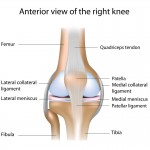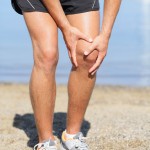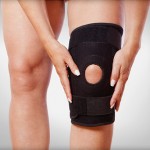Meniscal Tears
The meniscus refers to the the cartilage in the knee. Meniscal injuries are commonly seen in sport but the meniscus can also damage easily when the meniscus becomes degenerated with age. The meniscus lies on both the surface of the tibia and femur and it acts like a shock absorber.
Symptoms:
A popping sound can be heard when the meniscus is injured. The knee will swell and stiffen. If a piece of the meniscus loosens and begins to float within the knee a locking feeling can occur. The knee will feel generally sore, weak and stiff. When we experience any pain around the knee the muscles that supports the knee joint start to weaken. In particular, the vastus medialis muscle. When this muscle weakens the knee can feel like its going to give way on you or like its not stable. When this muscle weakens compensation occurs whereby other muscles will work harder and become tighter. Because the patellae or knee cap is positioned over the knee by muscles the imbalance can cause a shift in the alignment of the knee cap. This in turn will cause pain. We advice early assessment and treatment of knee pain to prevent further knee damage to occur due to compensation.
Treatment:
If the meniscus is damaged and a piece of the cartilage floats and arthroscopy may be needed to remove the floating piece. However, in some cases rest from high impact activities, anti-inflammatories may the answer. Physiotherapy is necessary in both cases to reduce pain, maintain strength, flexibility and prevent mal-alignments occurring as discussed above.







